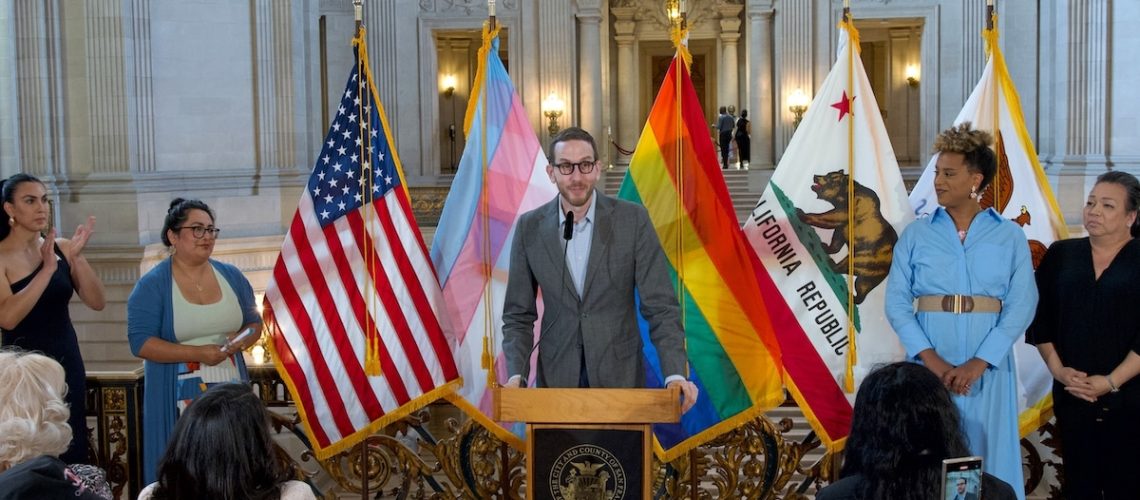Transgender politicians continue to face significant challenges in the U.S. political landscape, where their campaigns often contend with systemic barriers, media bias, and deep-rooted prejudices. Research and election data show that despite the growing visibility of transgender individuals in society, trans candidates frequently encounter hurdles that make it more difficult for them to win public office.
Trans Candidates Face Unique Challenges
Running for office as a transgender candidate is not only a personal decision but often a politically fraught one. One of the main hurdles for trans candidates is voter bias. While LGBTQ+ candidates as a whole have seen increasing success, transgender candidates remain the most vulnerable to voter skepticism. A 2019 study by the Victory Institute, which tracks LGBTQ+ political representation, found that while more LGBTQ+ candidates are running for office than ever before, transgender candidates face unique and heightened levels of discrimination from voters and political opponents. This reflects wider societal prejudices against transgender individuals, making it particularly challenging for trans candidates to appeal to broader electoral bases.
Media coverage of transgender politicians also tends to focus disproportionately on their gender identity rather than their political platforms, further marginalizing their campaigns. According to a 2022 report by Media Matters for America, transgender candidates frequently receive negative or sensationalized coverage, which often shifts the focus away from their policies and achievements and instead highlights their personal identity. This kind of coverage can alienate voters who might otherwise support these candidates based on their political platforms.
Anti-Trans Rhetoric in Campaigns
One of the most significant challenges for transgender candidates comes from their opponents, who often use anti-transgender rhetoric as a campaign strategy. In many cases, trans candidates are subjected to targeted attacks that seek to frame their gender identity as incompatible with holding public office. A 2024 study from the LGBTQ+ advocacy group Human Rights Campaign (HRC) highlighted that politicians who focus on anti-trans platforms, while often controversial, still manage to tap into deep-seated fears among certain voter bases, especially in more conservative districts.
In 2022, for example, in Kansas, Republican candidate Derek Schmidt launched a campaign against Democratic Governor Laura Kelly, largely focused on trans youth issues, particularly in sports and healthcare access. Schmidt’s anti-trans rhetoric, while widely criticized by civil rights groups, ultimately contributed to his defeat. HRC’s spokesperson commented on this trend, noting, “Voters have routinely rejected candidates who peddle transphobia and try to control personal healthcare decisions.”
However, even as candidates running on anti-trans platforms sometimes lose ground, trans candidates still face the challenge of overcoming the negative connotations associated with these attacks. Research shows that while voters increasingly reject outright transphobia, many still struggle to reconcile their views on transgender rights, making it a difficult electoral path for trans candidates.
Recent Election Outcomes for Transgender Candidates
Recent elections have underscored the difficulties transgender candidates face when seeking public office. In 2023, several transgender candidates ran for local and state-level positions across the United States, with mixed results. Sarah McBride, a transgender activist and former press secretary for the Human Rights Campaign, made headlines in 2020 when she won a seat in the Delaware State Senate, becoming the highest-ranking transgender official in the country at the time. McBride’s success was hailed as a breakthrough moment for transgender political representation, yet her victory remains one of the few exceptions.
Other transgender candidates have struggled to gain similar traction. Brianna Titone, a Colorado state representative, narrowly won re-election in 2022 after facing a fierce and targeted campaign against her transgender identity. Titone’s campaign reported experiencing harassment and threats, with anti-trans rhetoric playing a significant role in her opponents’ strategy. “The personal attacks were constant,” Titone stated in an interview with The Denver Post. “But I ran on my record, not my identity, and that’s what ultimately won me the race.”
In a more high-profile race, Danica Roem, the first openly transgender person to serve in a state legislature, won re-election in Virginia in 2021. Roem’s victory was seen as a positive signal for future trans candidates, though it came after a hard-fought campaign filled with anti-transgender rhetoric from her opponents. Roem, however, made it clear that her success stemmed from focusing on her policies rather than her identity, stating, “People care about fixing roads, not about whether I’m transgender.”
Voter Attitudes Towards Transgender Candidates
Polling data provides insight into why transgender candidates face an uphill battle. A 2023 survey conducted by the Public Religion Research Institute (PRRI) found that while Americans are increasingly supportive of LGBTQ+ rights, there remains significant discomfort when it comes to transgender issues. The survey showed that while 70% of Americans support laws that protect LGBTQ+ individuals from discrimination, only 50% expressed comfort with the idea of a transgender person running for or holding public office. This gap suggests that while transgender issues are becoming more visible, broader societal acceptance of transgender politicians is still lagging.
Moreover, the Victory Institute’s research has found that transgender candidates are more likely to face physical threats and verbal harassment during their campaigns, compared to their cisgender LGBTQ+ counterparts. These added challenges can deter transgender individuals from running for office in the first place, limiting their political representation even further.
In conclusion, while transgender politicians have made significant strides in recent years, the challenges they face in electoral politics remain daunting. Trans candidates must contend with voter bias, media misrepresentation, and targeted anti-trans rhetoric. As transgender visibility continues to increase, it remains to be seen how these dynamics will evolve in future elections.
21 Beliefs About the Bible That Are Actually False

The Bible is one of the most discussed and debated books in history, yet many common beliefs about it are more myth than fact. How many of these misconceptions have you heard before? 21 Beliefs About the Bible That Are Actually False
21 Subtle Racisms That Are Commonplace in America

Racism in America isn’t always overt; it often hides in plain sight through subtle actions and attitudes. How many of these subtle racisms have you noticed around you? 21 Subtle Racisms That Are Commonplace in America
Featured Image Credit: Shutterstock / Sheila Fitzgerald.
This post first appeared on Pulse of Pride.
- Sarah Griffinhttps://wokenpride.com/author/sarah-griffin/
- Sarah Griffinhttps://wokenpride.com/author/sarah-griffin/

